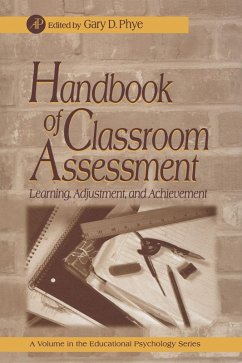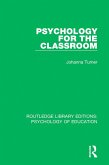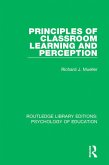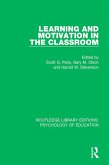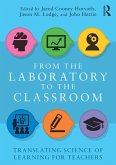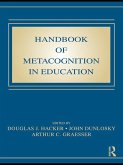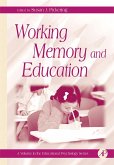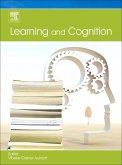The
Handbook of Classroom Assessment takes a multi-dimensional approach to classroom assessment. A successful combination of theory and practice, the book emphasizes the assessment of classroom learning within content areas and the development of standards for evaluation. Most chapters are devoted to the assessment of learning and achievement and discuss current theories. The book also features assessment of academic self-concept and subjective well-being in children and adolescents. The
Handbook provides successfully field-tested examples of assessment techniques and strategies within the content areas of mathematics, social studies, foreign languages, and the visual arts. Contributing chapter authors share the unique distinction of having backgrounds that include both the development of assessment theory and first hand experience translating theory into practice at the classroom, school site, state, or national level. The book is divided into four sections. Section I discusses the top five theories with respect to what learning is, how it's related to achievement, and how we assess both in the classroom setting. Section II on standardized assessment briefly covers all major standardized achievement tests used in preschool, K-6, and 7-12. Assessment of classroom learning, Section III, presents test instruments and techniques specific to the measurement of math skills, social science skills, and artistic talent across ages and grades. Section IV on classroom practices includes an assessment of general reasoning skills and performance and how to develop a grading philosophy.
Key Features
* Explains the why, what, and how of classroom assessment
* Combines theory and practice for a multidimensional approach to assessment
* Presents test instruments and techniques specific to measuring various skills
* Uses field-tested examples of assessment techniques
* Provides a resource for staff development at the school site
Dieser Download kann aus rechtlichen Gründen nur mit Rechnungsadresse in A, B, BG, CY, CZ, D, DK, EW, E, FIN, F, GR, HR, H, IRL, I, LT, L, LR, M, NL, PL, P, R, S, SLO, SK ausgeliefert werden.

